Updated 5/3/2025
If you have ever had swollen feet and ankles, then you know what a literal pain it is. In this article, I will discuss the causes of swollen ankles and feet and the treatment.
When your heart is weak, the fluid accumulates because the heart is unable to pump blood and oxygen throughout the body. This causes fluids to build up in the body.
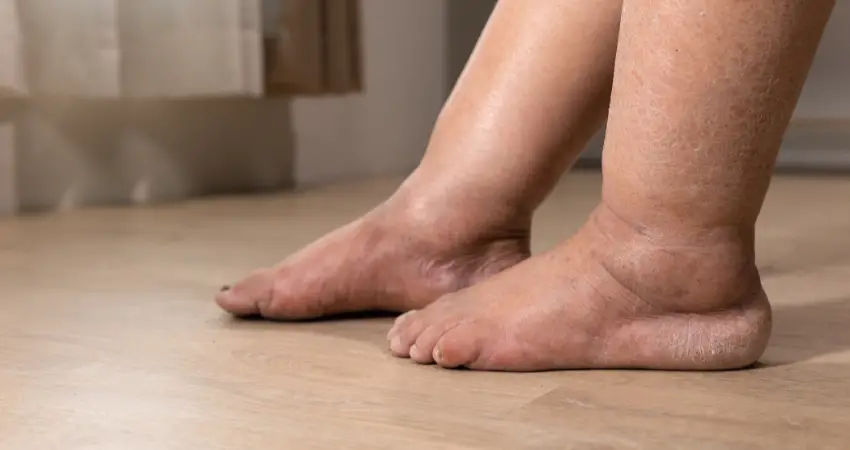
Usually, fluid retention or edema is a symptom of left-sided heart failure. Congestive heart failure is the inability of the heart to pump adequately, thereby the legs will often become swollen.
See Related Info:
Supplements to Help Heart Disease
How to Cope With Congestive Heart Failure
Why Does Congestive Heart Failure Cause Swollen Ankles?
Congestive heart failure can cause both leg edema and abdominal edema. The swelling occurs because the heart is too weak to pump blood around the body properly, so the blood gathers in front of the heart.
Due to the increased blood pressure in the veins, the fluid leaks out into the surrounding tissue.
This ankle compression sleeve is excellent to control ankle edema. The Kunto Fitness Ankle Brace Compression also controls swelling in the ankles.
This may cause swelling in the legs or a build-up of fluid in the abdomen. If the person spends a lot of time lying down, the edema might show up on his or her back (called sacral edema).
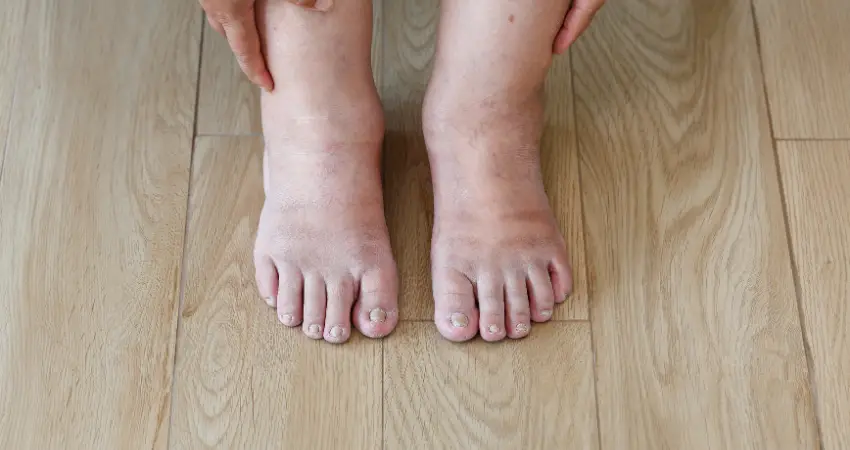
Congestive heart failure can also cause fluid build-up edema in the lungs. Edema in the lungs is life-threatening because the lungs are filling with fluid because the left side of the heart is not strong enough to pump the blood returning from the lungs.
Pictures of swollen ankles due to congestive heart failure can serve as a visual indicator of the condition’s effects. In some cases, beri beri sa buntis (beri beri in pregnancy) can lead to swelling as well.
Related Articles
Are sock marks a sign of heart disease?
Why is an angioplasty an incorrect treatment for an aneurysm?
Best Stethoscope For Nurses
Widowmaker heart valve
Sometimes the legs are more swollen than the ankles. In this case, the individual will need something to control the swelling.
The calf compression sleeve by TOFLY helps prevent varicose veins, edema, pain, and swelling. The blood gathers in the vessels of the lung, and fluid seeps out into the lung tissue. The signs are shortness of breath and rapid, shallow breathing or coughing.
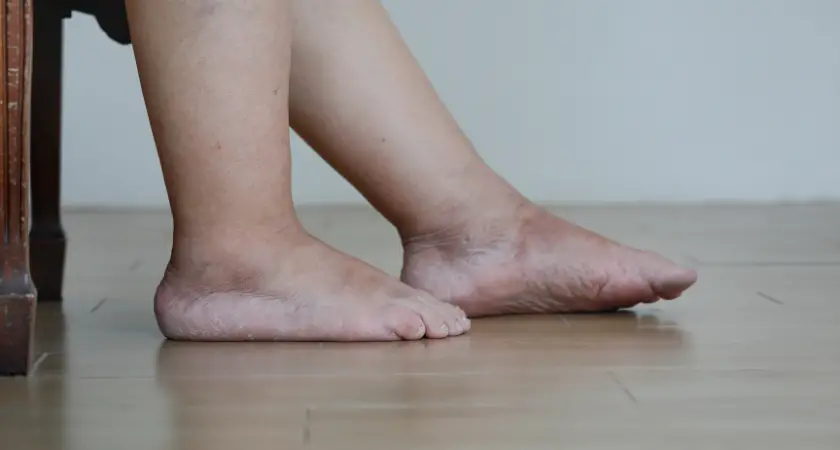
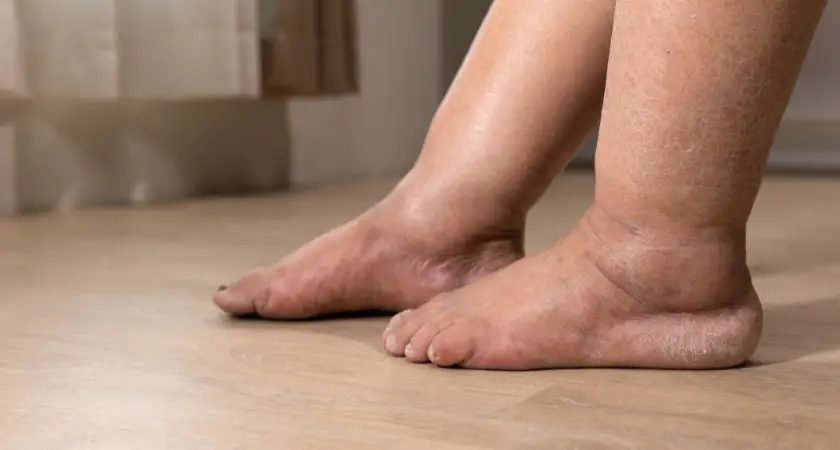
When to See a Doctor About Swelling
While some mild swelling in the feet or ankles can occur for benign reasons, such as prolonged standing or hot weather, it’s crucial to know when swelling signals a potentially serious underlying condition like heart failure.
Don’t ignore persistent or worsening swelling. You should contact your doctor promptly if you notice swelling in your legs, ankles, or feet, especially if it’s accompanied by other concerning symptoms. Be particularly vigilant if the swelling occurs alongside shortness of breath, difficulty breathing when lying down, unexplained weight gain (which can indicate fluid retention), chest pain, fatigue, or a persistent cough.
Swelling that appears suddenly, affects only one leg, or is associated with pain, redness, or warmth in the affected area also warrants immediate medical evaluation to rule out conditions like blood clots.
Early diagnosis and treatment are key in managing conditions like heart failure effectively, so never hesitate to seek professional medical advice if you’re concerned about swelling.
Treatment for Ankle Swelling In Congestive Heart Failure
- The first line of treatment is a diuretic called Lasix. When swelling is severe, intravenous Lasix is prescribed.
- Diuretics such as Bumex and Aldactone
People with CHF should limit processed foods and canned foods.
- Elevate legs
- These socks are used for compression and they increase Increase Blood Circulation, Relieve Arch Pain, Reduce Foot Swelling
- These compression stocking sleeves Relieve Achilles Tendonitis, Joint Pain. Plantar Fasciitis Foot Sock with Arch Support Reduces Swelling & Heel Spur Pain. Injury Recovery for Sports
- These compression stockings are used for Athletes, Runners, Nurses, Shin Splints, Flight Travel & Pregnancy – Boost Stamina, Circulation & Recovery
Compression Stockings
are very effective in decreasing swelling. They come in small-plus sizes. These stockings come up to the knee or the thigh.
- Another good choice is 7 Pairs Compression Socks For Women
.
- When a person with congestive heart failure has swelling of the ankles, they should be weighing themselves daily. This Bathroom Scale has great reviews on Amazon.
Related Articles
Normal Troponin Levels
Magnesium Overdose Symptoms
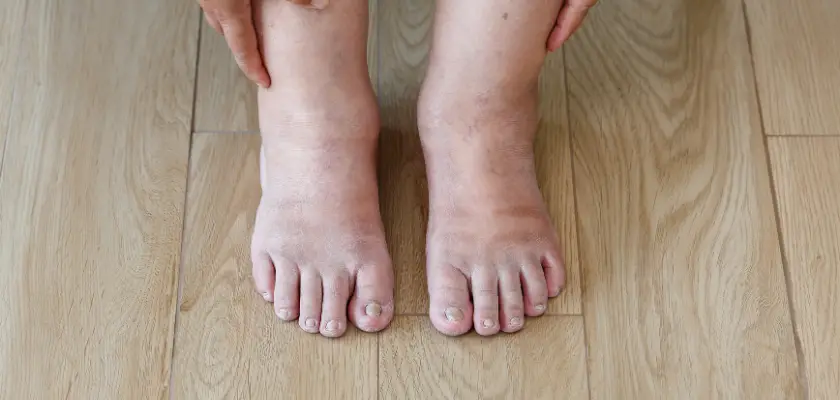
Causes of Swelling in Legs and Ankles in Congestive Heart Failure
Congestive heart failure can cause both peripheral edema and abdominal edema (ascites). This is because the heart is too weak to pump blood around the body properly, so the blood gathers in front of the heart. Because of this, and due to the increased blood pressure in the veins, fluid seeps out into the surrounding tissue.
This may cause swelling in the legs or a build-up of fluid in the abdomen. If the person spends a lot of time lying down, the edema might show up on his or her back (called sacral edema).
Congestive heart failure can also cause edema in the lungs (pulmonary edema). This is not common, but the condition is life-threatening. It means the lungs are filling with fluid because the left side of the heart is not strong enough to pump the blood returning from the lungs.
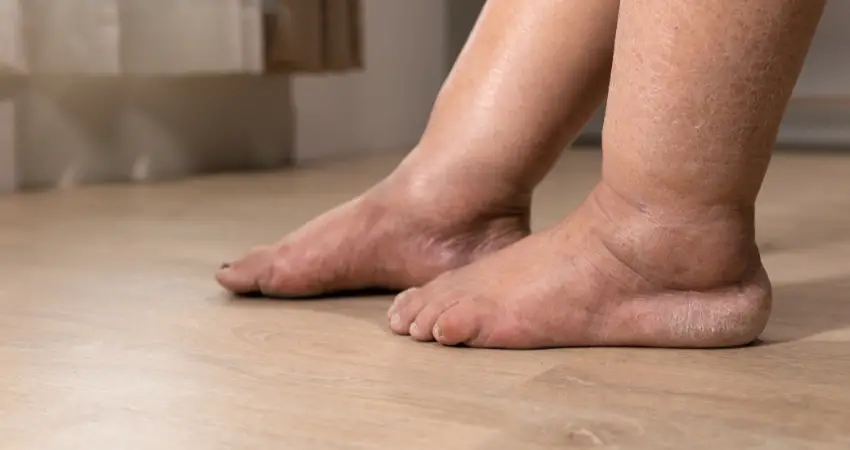
The blood gathers in the blood vessels of the lung, and fluid seeps out into the lung tissue. The signs are shortness of breath and rapid, shallow breathing or coughing.
The following are the reasons why you may experience swollen ankles due to congestive heart failure:
Fluid Retention
Inadequate Blood Flow:
Kidney Dysfunction:
CHF can cause the kidneys to retain sodium and water, leading to fluid buildup in the body’s tissues, including the ankles. Venous Insufficiency: In some cases, CHF can cause venous insufficiency, leading to blood pooling in the legs and feet, causing swelling.
Early Signs of Edema and Swelling
Swelling or edema comes about when there is excess water in the tissues. Edema most commonly occurs in the arms and legs. Although it can occur in the abdomen. There are some early signs of edema that you should be aware of.
- Arms or legs that suddenly start to feel heavy
- When pressing on an arm or leg leaves a “dent”
- When clothes and jewelry start to feel tight
- Pain in surrounding joints

Causes of Edema
- Edema could be benign, or it may simply go away by itself
- It could be a symptom of heart disease that needs treatment right away
- Sometimes edema is caused by cancer treatments (lymphedema).
- Sometimes, medications can cause swelling or edema.
Edema related to circulation heart, or liver problems are serious, and these conditions need emergency treatment.
Venous Insufficiency
Venous insufficiency can cause swelling in the feet because the veins are having trouble transporting blood to the feet and back to the heart.
When this happens, the blood gathers in the feet, and water is forced out of the blood vessels into the surrounding tissue. Varicose veins can also cause edema.
Congestive Heart Failure
Congestive heart failure can cause peripheral and abdominal edema. In CHF, the heart is too weak to pump blood around the body, therefore the blood gathers in front of the heart. Because of the increased pressure in the heart, the fluid leaks into the surrounding tissues.
Peripheral Vascular Disease
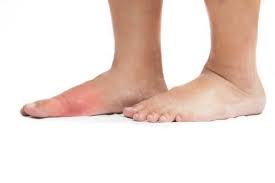
Peripheral Vascular Disease
Peripheral vascular disease can cause edema because the vessels in the lower extremity are damaged. When you develop peripheral vascular disease, your lower extremities don’t receive enough blood flow to keep up with demand. This process causes edema and leg pain.
If you have ever had swelling in your ankles and feet, leave me a comment on what worked for you. These are pictures of swollen ankles due to congestive heart failure.
See Other Articles About Congestive Heart Failure
Ribose For Congestive Heart Failure
Husband’s Journey of Healing From Congestive Heart Failure
How to Cope With Congestive Heart Failure
My name is Phyllis Robinson MSN, RN. I have been a Registered Nurse for 27 years in the Cardiac Intensive Care Unit. I am passionate about cardiac care and heart disease. I also want this blog to be an educational tool that people can refer to for traditional and alternative treatment. I will blog on heart disorders such as high blood pressure, congestive heart failure, cardiomyopathy, and high cholesterol.
I received my Nursing degree from Baltimore Community College.
I went on to receive my Masters in Nursing from Walden University
I have worked for almost 30 years in Critical Care with a focus on heart health. I am an advocate of preventive healthcare.

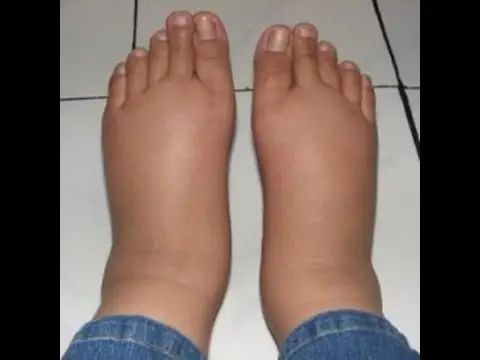



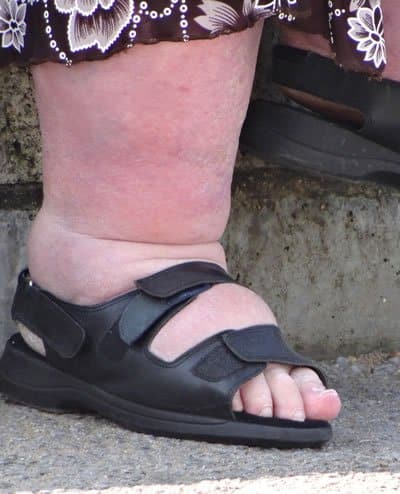



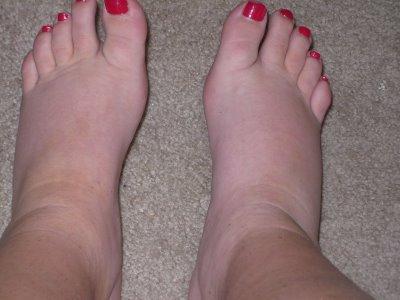
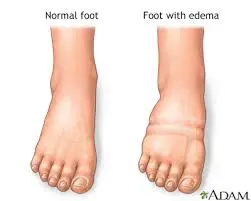
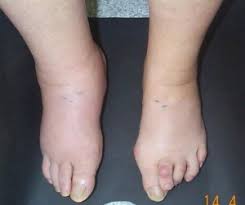
To keep water from your legs don’t eat SALT it will kill you i have it for 11years and by staying away SALT it’s a killer.
how do you not eat salt it is in everything, canned food, fast food, frozen food, what kind of food is left to eat ? I have congestive heart failure have been in hosp for it, but now my stomach bloated, and hurting up in right side, but burning like or knife like pain in band around above stomach area, have to sit up to sleep, tonite hurts so bad with stomach swollen do not know if sleep will come, have a life vest on from hosp stay, they made me wear it, but is this ongoing does it ever stop ?
You have to eat fresh food and season it with herbs and spices. Are you familiar with the keto diet? It works miracles for fluid and CHF.
This is helpful information. My ankles and feet are filled with fluid I have doctors appointments to see what is going on with me. never had this before. This just started about three weeks ago. I stop using salt about 20 years ago or maybe longer. Eat very little fast food. Always used fresh veggies when I can get them. When using canned veggies drain off water and cook like fresh.
Want to be healthy just hoping that is not CHF hoping its the meds and that can be adjusted. Taking fluid pills that don’t seem to work anymore. That is a concern of mine. Hopefully the doctor can tell me what the problem is so that it can be fixed,
Diet is everything. Have you tried a low carb diet? These solutions that I have suggested work really well.
This is helpful information. My ankles and feet are filled with fluid I have doctors appointments to see what is going on with me. never had this before. This just started about three weeks ago. I stop using salt about 20 years ago or maybe longer. Eat very little fast food. Always used fresh veggies when I can get them. When using canned veggies drain off water and cook like fresh.
Want to be healthy just hoping that is not CHF hoping its the meds and that can be adjusted. Taking fluid pills that don’t seem to work anymore. That is a concern of mine. Hopefully the doctor can tell me what the problem is so that it can be fixed,
I cook everything from scratch including sauces and gravies. That way I have control over the amount of salt that goes into my food. Not a hard task to do if you are prepared to put in some effort
I can’t always cook from scratch. I am on a limited budget of $250 a month for groceries. So I have to make due with bulk packages of 80% hamburger, bulk chicken, bulk pork. I have to cook for 2 people. I also pick up some fresh and cups of fruit. I buy frozen vegetables and canned vegetables. Rice, noodles and bagged potatoes. And that is about all I can afford for the month. My son has autism and we both have to take care of one another. He has to go everywhere I go due to the fact that I have a tendency to get dizzy and pass out or lose my balance and fall down. He likes pushing me in wheelchairs because he thinks it funny that he can push me around and get away with it. I’ve been lucky I haven’t been in the hospital since last Christmas for low blood presser and high blood sugar and dehydration and very low kidney numbers. With my food I serve up a normal serving and eat half and save the other half for the next day for lunch. For breakfast I have a small bowl of cereal or fresh fruit or a cup of fruit.
I hope you are couponing ?
hi, I have had swelling mostly in the right leg, and foot, but its slowly starting in the left also, however, Ive been to specialists and been throughly examined for CHF, ultrasound, electrocardiograms, the works, and complete urine and blood tests all come back good. What is causing this???
Hi and thanks for asking the question. Not all swelling is related to heart issues. Have you had any vascular studies done? Are you taking any medications? How is your kidney function? Do you have adequate protein in your body? These are things that you need to be discussing with your physician and having him do the appropriate labs and diagnostic test.
I just got out of the hospital last Thursday with swelling of the feet and legs now they are swollen and hurting again, I don’t know what to do!
I am so sorry to hear about your leg swelling. Have you tried a low carbohydrate diet?
Did the doctors not find out what the problem was? How is your heart function?
I too only have swelling in my left ankle, all my blood work is normal, could that mean heart failure?
You should go to your doctors and ask for an ECHO test. This test will check the function of your heart.
In the meantime, try and lower your carbohydrates and please read this article.
https://www.healingheartdiseasenaturally.com/home-remedies-for-congestive-heart-failure/
Nurse Robinson
My husband stomach is so swelled ,he has chf. He can hardly eat anything cause he feels full.the fluid pills do not help.is this worse on the heart ,with his stomach so swelled
Have you tried the awesome foursome? https://www.healingheartdiseasenaturally.com/home-remedies-for-congestive-heart-failure/
Have your husband go on a low carb diet.
I have fluid retention in feet and ankles more now since i have been taking anti.coagulants for a heart rhythm problem that is now under control also my blood pressure perfect and i have it taken twice a week. I take diurectic tabs but although i pass urine a lot when taking them my feet remain swollen and more in the hot weather. I am slightly overweight. My analysis from hospital shows that the kidneys are working properly. So what di you think the cause of my problem could be. I do have a hip problem on the right side and walk a little bit onesided but the surgeon says my hip is not sufficiently bad enough to have an operation yet.
The cause of your fluid retention is indeed the blood thinners. I know patients who take Eliquis and they have fluid retention.
Try going on a low carbohydrate diet. Also, try to get some compression stockings.
Nurse Robinson,
As an overweight 50 plus year old, I’m beginning to really worry about my health. I use to be healthy in my 20s but let it all go. I eat bad and don’t sleep well and get little exercise. I feel like years of insomnia are partly responsible for not eating well…meaning, I feel stressed a lot. My cholesterol is high too. Anyway, my ankles around the ankle bones are always big and puffy and look weird. I’m worried, because even the skinny people in my family, like my parents had problems…my dad had arterial sclerosis and vascular problems where one of his legs would swell. He passed of a massive coronary age 73, while actually looking young and like the picture of health. I’m becoming upset with myself for allowing me to just stop caring. I know I have to get some of this weight off and keep it off. I’m wondering about the “vascular studies” you’ve mentioned above in one of your replies. What is it, and how to do I request it. Thank you for your blog.
I am so sorry to hear about your health issues. Just now that you can turn them around. Food is medicine.
How is your diet? Try and cut out the simple carbohydrates like sugar, flour, soda etc.
The test you would like to start with is called a Doppler study. You have to go to your doctor to request it.
Let me know how you are doing?
Nurse Robinson
I have had chf since 2017 when I went into the hospital due to dehydration. Found out I was diabetic as well. I had edema so bad that when I was released out of the hospital I was put into a rehab center for a month and a half. When I got out I got a primary doctor and had a complete checkup. I had to have a colonoscopy and get a cardiologist. My cardiologist listed me as 4 on the New York Heart Association Classification. He put me on spironolactone, atorvastatin and torsemide. After two weeks and the edema in my legs was not going down he added metolazone 4 days a week with my other medicines and that helped with my swelling in my legs and feet. When I started on these medicines I weighed 296 lb. in 2017. Now I weigh 220 lb. All the weight was caused from water retention.
Now I have a third Dr. for my diabetes and he wants me off of the metolazone. So My heart Dr. cut me down to two days and my legs and feet are swollen again. I am eating a low carb diet for my diabetes to keep my sugar levels as low as possible. I have cut out salt and sugar. When I do use salt it is a small sprinkle and I use Splenda in place of sugar. I have to be careful because I have kidney problems as well (I am 3b on the ckd chart). I can’t take any pain medicine for a headache or my back pain from osteoarthritis and degenerative disc displacement and scoliosis in my lower spine.
I have an appointment with my cardiologist on Dec. 3 and I hope he increases my metolazone back to 4 days. I can’t wear compression socks due to the nerve damage to my toes in both feet. They go numb and start cramping and I can’t walk when that happens.
I hope everyone finds an answer for their conditions. I have to be fitted for a cpap in January. I hope that helps with my sleeping. I get about 4 hours (if I’m lucky) a day. Thank you for listening and I’d like to have any advise that you can give me. And Happy Thanksgiving to you and your family.
I think you need to change your diet. A low carb diet will help the diabetes and the edema.
Are you on Facebook? I have a wonderful group called Healing Heart Disease Naturally. https://www.facebook.com/groups/703923789687081/
Do you monitor your blood sugar daily?
i had my legs amputated to stop the swelling now my arms are swelling all the time a friend told me to have a spon full of horse raddish twice a day and now no more swelling I wish I had been told this before I had my legs amputated I would still have them a old farmer told my friend that horse raddish cures anything from colds and flus to heart problesa and he is 98 year old he never takes any other medicine